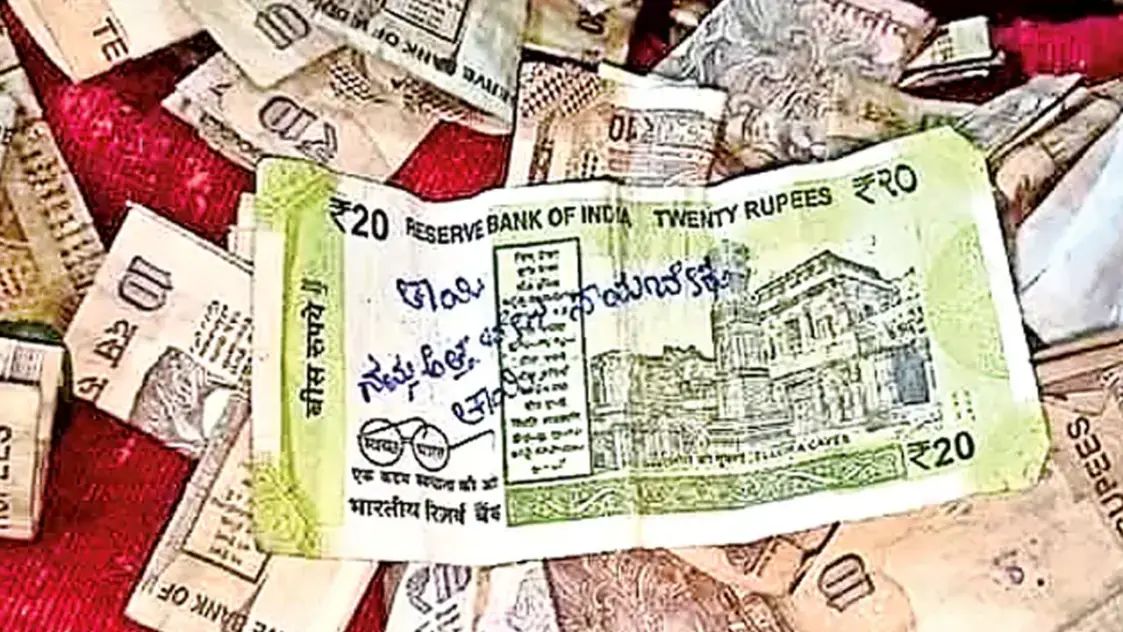Shocking Message on ₹20 Note in Karnataka Temple Hundi: Devotee Wishes Mother-in-Law’s Death

NEWS CHARIOT (Karnataka, Dec.30) : A recent incident in Karnataka has sparked controversy and discussions regarding the offerings made at religious temples. The event took place in the Bhagyanthi Devi Temple located in the Ghattaargi village of Afjalpur taluk, Kalaburagi district, where the temple authorities were conducting their annual counting of donations in the temple’s donation box (also known as the “hundi”).
During the process of counting the offerings, a ₹20 note was found with a disturbing and unusual message written on it. The note bore the words, “I wish my mother-in-law dies soon.” This unexpected message shocked the temple staff and those involved in the counting process. The note, which was intended as a donation, left the temple authorities and onlookers perplexed. It raised questions about the motivations behind such a message, leading to debates about whether it came from a disgruntled son-in-law or daughter-in-law who wished ill upon their mother-in-law. The incident highlighted the emotional undercurrents sometimes tied to such acts, with some wondering whether it was an expression of frustration, anger, or an attempt at gaining divine intervention for personal grievances.
This type of offering is not an isolated occurrence. It is common for devotees to offer various types of items in temple hundis as a form of devotion, including cash, gold, silver, and other valuable objects. Some individuals even write their wishes, prayers, or requests on pieces of paper or currency notes and place them in the donation box, hoping for divine favor or intervention. However, the inclusion of such a specific and negative wish on the ₹20 note has certainly raised eyebrows.
The Bhagyanthi Devi Temple, like many others, counts the donations in its hundi once a year. In 2024, temple authorities revealed that the offerings amounted to ₹60 lakh in cash, along with silver items totaling one kilogram. These donations were collected from devotees throughout the year, who contribute varying amounts according to their means and devotion. The amount raised this year was substantial, reflecting the faith and generosity of the local community.
However, the discovery of the message on the ₹20 note has overshadowed the usual process of counting donations. The incident has brought attention to the sometimes bizarre and unexpected nature of temple donations, where devotees express their deepest desires, concerns, and even grievances through their offerings. This unusual event is likely to fuel further discussions on the ethical and emotional implications of such donations in religious settings.






